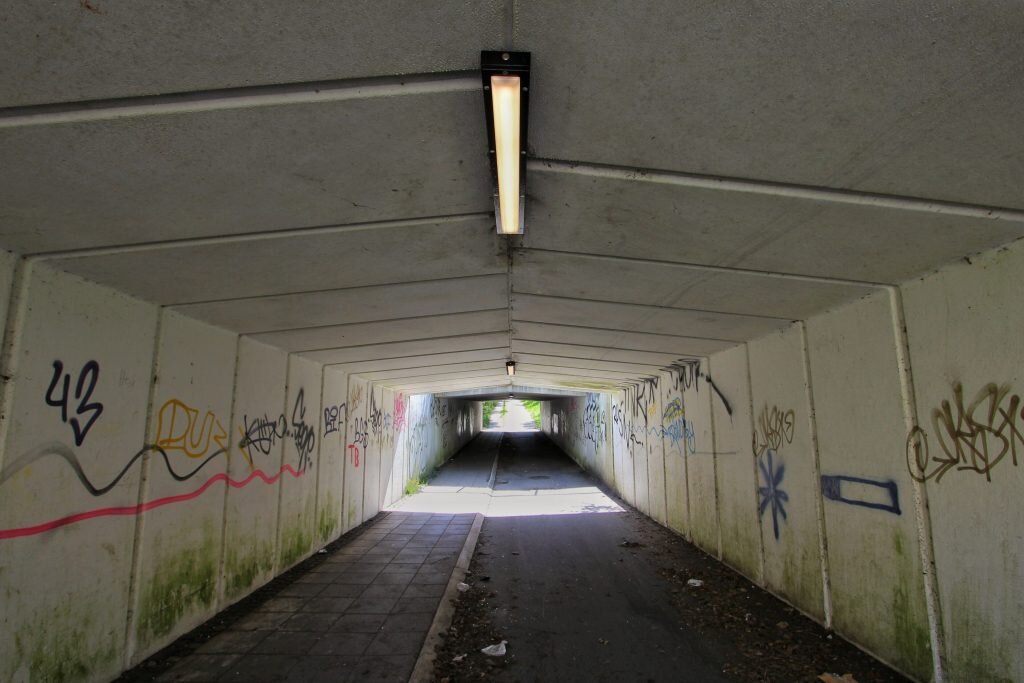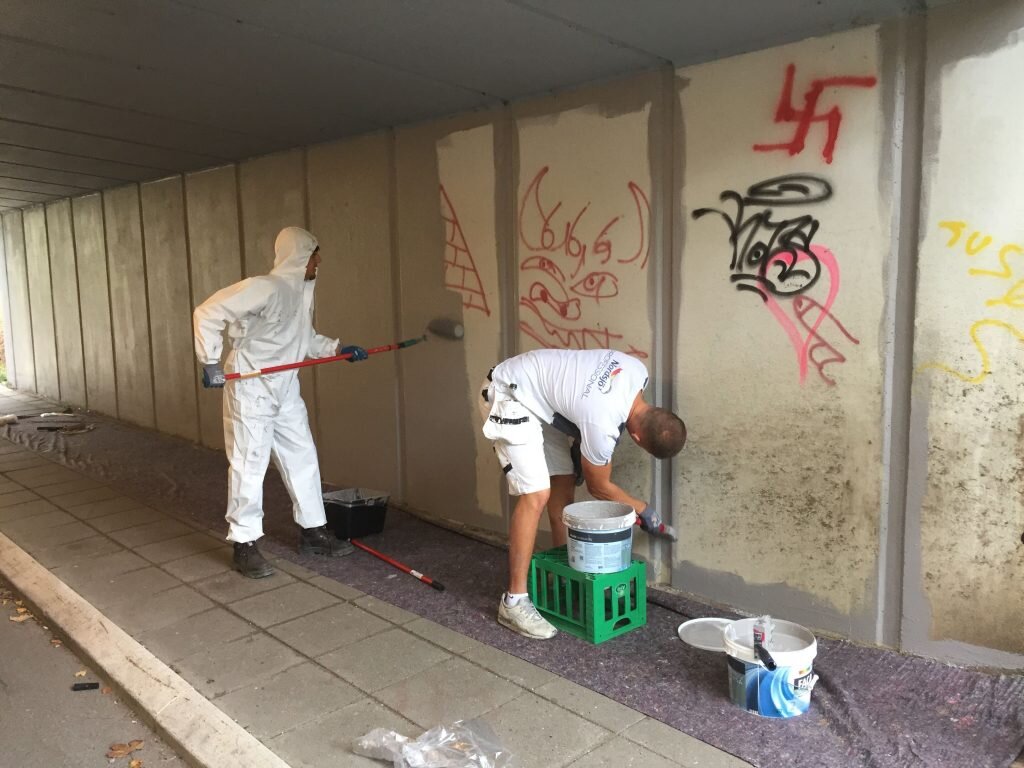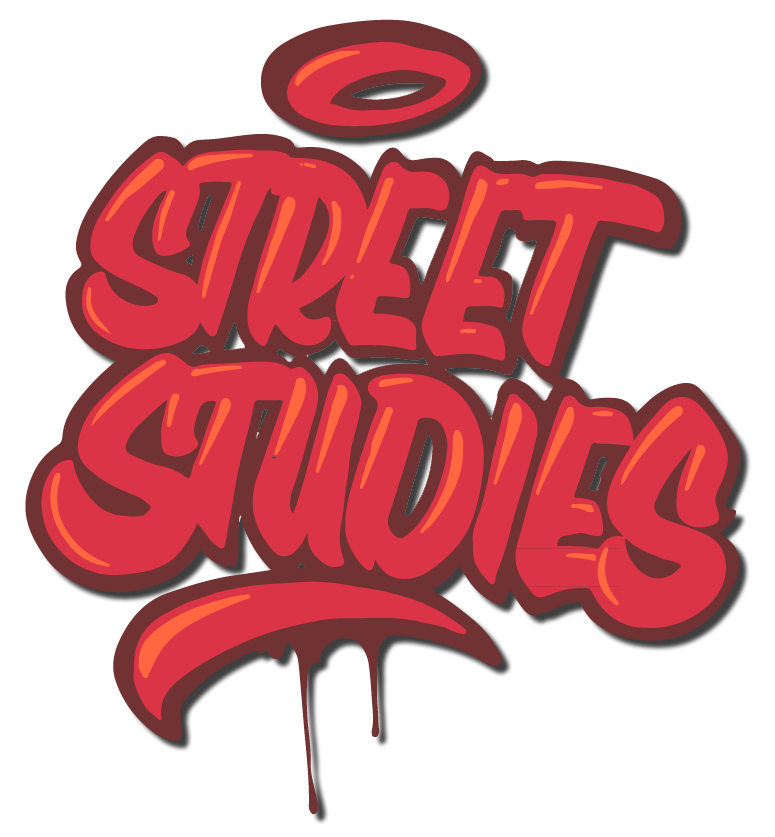
URBAN SAFETY
The appearance of a public space influences the state of mind of the individual and the community as a whole. If one does not feel safe in the surrounding areas, most other efforts become irrelevant. We want to revitalize neglected or unsafe spaces through art and culture.
urban art as a transformation tool
Changing perceptions
Art has the power to change perceptions. It can change both an outsider’s perspective of the people and place - as well as a community member’s perception of themselves and their neighborhood. Art is a powerful tool for changing those narratives.
Empowering at-risk youth through contribution to the creative process
Urban art supports local crime prevention initiatives by engaging at-risk youth in meaningful ways. The rich social history of urban arts and hip hop expresses authenticity that many of these youth respond to, giving them something "cool" to involve themselves in. While engaged, opportunities for character-building arise, giving them alternatives to current anti-social patterns.
RepaIring damage and visual cues
Research suggests that there are public safety benefits to the economic development and aesthetic qualities created by revitalizing buildings and public spaces. Art projects such as light installations and muralism are impactful creative solutions in this regard. Not only do these elements address the maintenance issues, but they will also give way for increased visual safety cues. This provides a sense of caring for the area, increasing overall perceived safety for everyone.
Connecting people to place
Art spaces, events and installations can connect community members across cityscapes by serving as a magnet for social connection and foot traffic. This buzz helps keep urban spaces safe by providing helpful eyes in the street, according to the revered place activist Jane Jacobs.

Jump to our services
Bottom-up approaches
Street Studies as creative placemakers are committed to the idea that communities themselves help to identify the aspects of their space or place that they wish to transform. We are responding to the community’s self-articulated needs and build a creative project for that neighborhood based on those themes. Community stakeholders will be involved in most stages as the project progresses.
Long-term programs will be locals represented in a transformation board for the area. This provides valuable and necessary sparring aiding with the decisions regarding the programs overall direction.
We are there to bridge and facilitate this articulation between the community and various stakeholders. This is a connection we find very relevant - as many neighborhoods have a diverse group of stakeholders, working on the same problems individually.
Visual appearance is key
Negative cues are picked up by locals and are often perceived as unpleasant or unsafe. By changing these cues we can alter atmospheres, and urban art is one of the most cost-effective solutions.
Our work turns negative atmospheres into vibrant experiences, in locals and visitors day-to-day.
The creative process gives us an amazing contact with locals and a great amount of direct feedback. Informal yet important feedback that can be hard to get any other way.
Defining moment in public safety
Recent international and national attention on the connections between race, place, and the justice system. Societal commentaries like these can be important when communities are healing from conflicts and traumatic experiences. We need to underscore that feeling safe in public spaces may matter even more now than ever before.
As the voices for change in local communities grow louder, the perspectives of creative placemaking offers unique insights into underlying dynamics of neighborhood change - No matter if its a specific local matter, or the locals empathizing with a larger idea.

Everybody needs to feel safe in their daily environment. It’s a VERY basic need, connected to atmospheres, visual impressions and to the indivudal conception of a neighbourhood’s reputation as either safe or dangerous. Visual appeal and narratives matter!
— Steffen Gray, Chairman of Street Studies

OUR SERVICES
sense - engage - transform - thrive

URBAN SAFETY CHECK
Get kick-started on your participatory urban safety efforts! With a visit from one of our urban safety specialists, you will receive a report outlining transformation potentials. Included in all the safety checks are:
A description of our initial impressions,
An evaluation of which typical 'perceived safety' risks you could be facing and
3-5 recommendations on how to make your surroundings safer.
More in-depth elements can be added to the check, based on your needs. A special intro-format is offered to new partners. Contact us for more information and prices.
What do you get?
Field trip
Export quick findings and recommendations onepager
Dialogue with local democratic boards
Focus areas plotted on a map
A more detailed assessment of the above
A full day in the area, doing focus-interview, summarized in findings.
INTRO
✓
✓
QUICK
✓
✓
✓
✓
STANDARD
✓
✓
✓
✓
✓
EXPANDED
✓
✓
✓
✓
✓
✓
What happens after the check?
The safety checks are our “get started”-service, easily used by everyone. We tailor-make all projects to suit your specific area and situation, in most forms and all sizes. Our experienced organizers will guide you safely through common strategies and provide you with valuable tips and tricks from the field.
Below are 3 case examples, where you can see the potential projects to create safe and inspiring spaces.
TUNNEL makeover
Dark and neglegted tunnels is a recurring theme when we ask communities to give feedback on the most unsafe areas in their neighborhood; however, they are vital for mobility and traffic safety. Transforming the tunnels into urban art galleries solves this characteristic challenge. Artist-led projects working with local residents and businesses make the tunnels and underpasses a safer and more pleasant environment.
Inspiring art encourages walkability and an increased feeling of safety. As the tunnels are percieved as cared for, natural imagination and association of illegal or dangerous activities is reduced.
Transforming it into a urban arts gallery creates new experience dynamics; either as a unique and constantly evolving space or a carefully curated artwork. If tunnels are seen as safer and more enjoyable, we believe it emphasises it's core functionality as a vital connecting route for the locals.
PROJECT EXAMPLE: Greve Tunnel Project 2017
AT-risk youth job programs
As communities take on a role of social stewardship, we need to look beyond formal ways of engaging with locals. We advocate for including at-risk youth, as it has many positive implications:
opportunity to create art and build self-esteem
revitalizing disenfranchised communities
offering people a place to express themselves through a visual means.
options to financially support the youth in these projects, providing them with a source of income.
This process puts creative responsibility in hands of these youths, giving them a bit of social and economic earning and something to be proud of. They often see a more constructive role in society and it empowers them.These activities can be integrated into municipal graffiti management and maintenance plans.
We experience that including these user groups leads to reduced graffiti vandalism, and instead gains local support for vibrant, colourful street art.
PROJECT EXAMPLE: FRAK
Planning and Designing FOR Community Engagement
Community engagement works best when it is an ongoing process enabling relationships and trust-building as the partnerships strengthen over time. One-time events and activities should be planned and designed with a greater overall effort in mind. Significant results occur over time, as awareness and motivation starts to build in the neighborhoods.
Street Studies has created an in-depth and customizable toolkit, providing guidance as well as a plan on how to include community engagement with a focus on safety.
We can help you plan, facilitate or evaluate your community engagement. These engagement efforts can include:
WORKSHOPS AND FOCUS GROUPS | Allow people to discuss ideas in an open, constructive and relaxed atmosphere.
PUBLIC INTERVENTIONS | Consult large numbers of people and gather informal feedback.
COMMUNITY MAPPING | Use maps and photographs of an area or specific location to illustrate various perspectives and priorities.
Transforming public spaces and tunnels happens to be our specialty. If you have a project in mind, don't hesitate to contact us!
what our research says
It all begins with an idea.
The locals says
READ MORE ABOUT OUR RESEARCH HERE

Read more about our RESEARCH
WE ARE the PROUD ORGANIZERS OF GREVE TRYGGE TUNNELER
The project is a collaboration between Greve Municipality’s Traffic & Landscape department and Street Studies CPH to create a safe environment for the users of the city’s tunnels.
As part of the pilot project Greve Trygge Tunneler, the team, together with the municipality of Greve and the residents in the local area, have worked on telling stories on the neglected tunnel walls.
Inspired?
Contact us to help you get going with a similar project
Urban arts experts - trusted by municipalities
SPEAKerS AT THE H22 CONFERENCE
street studies receives the RINGSTED cultural award
helsingborg EXPERT JUROR
On the topics social and cultural entreprenurial ways to increase urban safety, through sparking local initiative. Other speakers included New York Criminal Justice, The Mayor of Helsingborg and many more.
For innovative ways of rethinking art into urban spaces - Resulting in more vibrant, democratic and safer hotspots in the city.
And sparringspartner for Helsingborg (Sweden) urban planning department, in their urban art competitions. These competitions uses urban art for a multitude of purposes,
our services are 100% based on NONPROFIT PRINCIPLES
Meaning we:
work actively and passionately with UN’s SDGs
reinvest our net income from new projects within our mission statement,
consume according to a strict spending-policy,
engage in research to increase our overall understanding of and benefit to society and public spaces.
And much more.









